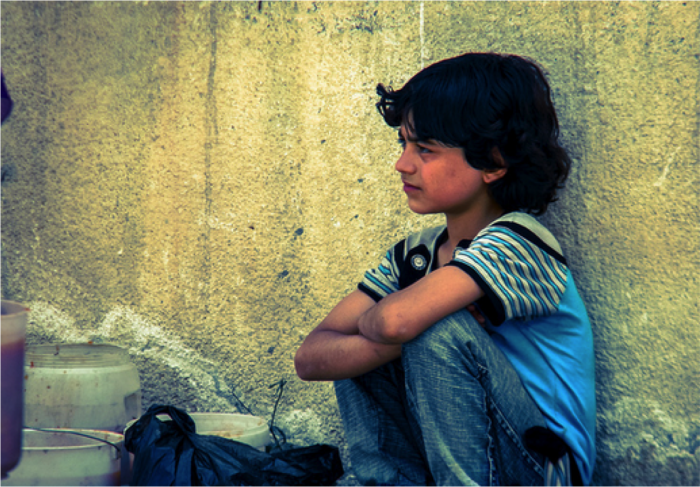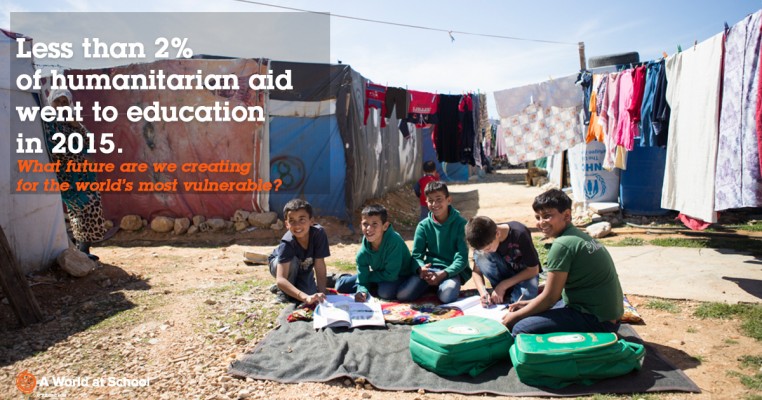New Scorecard Reveals Education Disrupted For 75 Million Children

Photo by UNICEF/Altaf Qadri.
A new scorecard released by A World at School reveals that the education of 75 million children and youth was affected by humanitarian emergencies and protracted crises in 2015. Without scaled up commitments from all sectors, these children are at an increased risk of falling prey to child labor, early forced marriage, trafficking, or extremism — all of which only further reinforces the urgency to increase investments in education.
Over the past five years, record numbers of attacks on schools, level three emergencies (the most severe and large scale), and the largest refugee crisis since the Second World War have increased education in emergencies funding needs by 21 percent. Yet despite the record number of children affected, humanitarian aid for education has nearly halved in the same period, leaving an annual funding shortfall of $9 billion.
A World at School’s Scorecard examines the 28 humanitarian appeals put forth in 2015, revealing the progress — or lack thereof — in funding education in crises like the Nepal earthquake and the conflict in Syria, now entering its sixth year. The two emergencies alone have jeopardized the education of more than 6 million children and youth in 2015.
Additional key findings include:
- Just 12% of children and youth in emergency situations in need of education assistance were reached through humanitarian appeals in 2015.
- Commitments from the top ten donors to education in emergencies dropped 28% since 2010. Six of these donors decreased funding by more than 50%.
- Of the 133 total education appeals made since 2010, just six appeals — four related to the crisis in Syria — received nearly half of all funding.
With less than 2 percent of all humanitarian aid given to education every year since 2010, millions more children will be left behind without urgent action.
The private sector has played a significant role in delivering education to these children. Building off of the commitment made at the Olso Summit last July to develop a platform to better finance and coordinate education in emergencies, GBC-Education members have twice contributed to global consultations around the creation of the platform and have represented the private sector on a Technical Strategy Group charged with overseeing this development. And in February, GBC-Education announced $75 million in commitments from the private sector and partners in support of efforts to educate one million Syrian refugee children.
This May, the UN Secretary-General will host the world’s first ever World Humanitarian Summit, convening governments, humanitarian organizations, NGOs, and business to launch the new platform to fund education in emergencies. The launch is a critical opportunity for stakeholders to chart an ambitious path forward towards securing opportunity for the 75 million children in need.
Read the full scorecard here.
To learn more about how business can contribute to this effort, please contact Lauren Lichtman ([email protected]) or Lorraine Charles ([email protected]).

